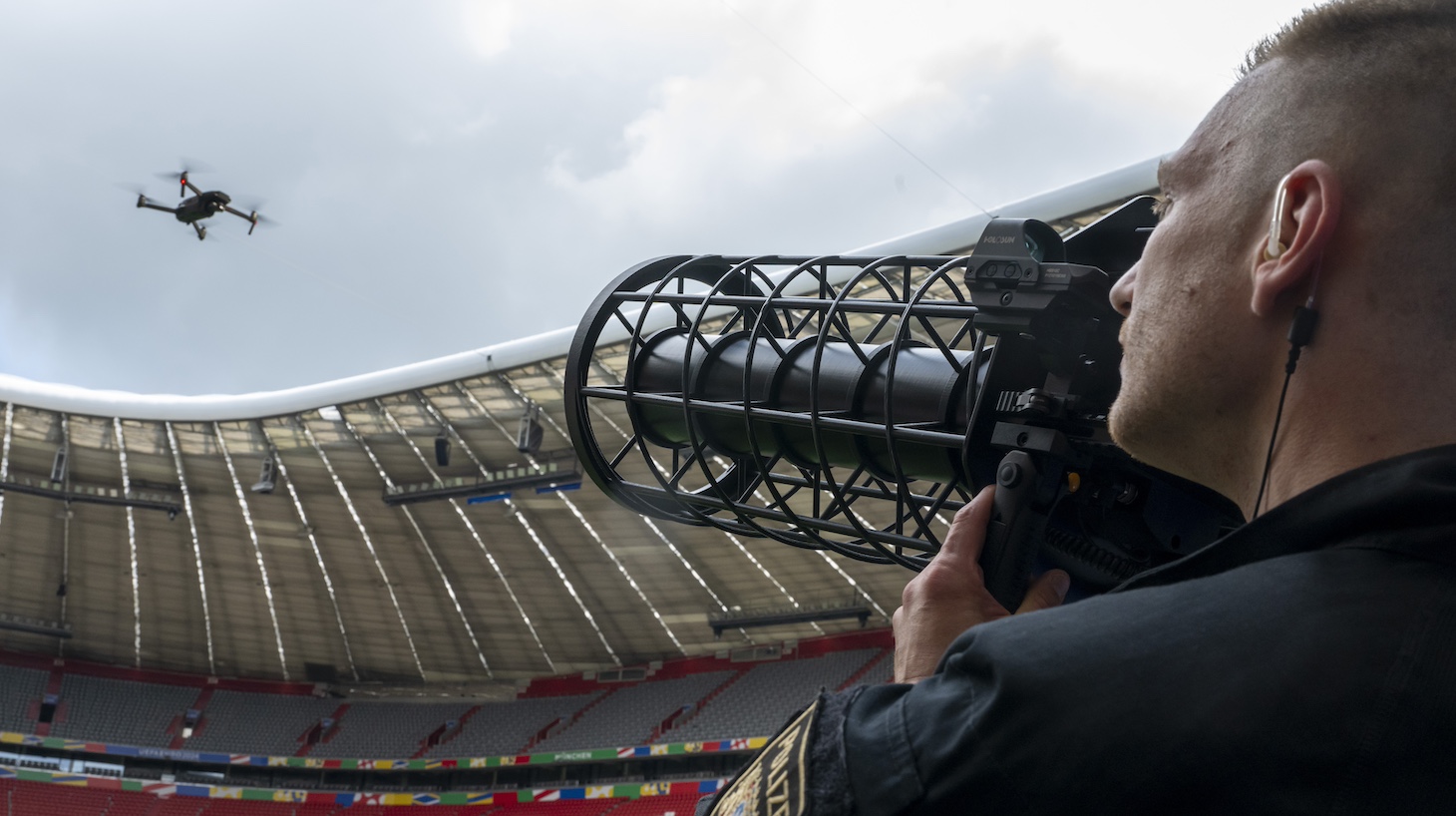Lovers of comedy and haters of Canada's all-too-precious humility were a little disappointed with Canada's comeback win over New Zealand in Tuesday's kick-off match of the Olympic women's soccer tournament. Only days before, a member of Canada's coaching staff was caught using a drone to record footage of a closed-door New Zealand training session, blessing us with a good clean scandal to delight in before the Olympics had even started in earnest. It seemed like the scandal might've hit its hilarity apex when New Zealand, huge underdogs against the far superior Canucks, opened the scoring 13 minutes in, only for Canada to find an equalizer right before halftime and nab a winner late on. Little did we know.
TSN's Rick Westhead reported Thursday night that Canada's practice of using drones to spy on opponents' training sessions goes back years, and has been used by both its men's and women's soccer teams. Westhead's sources traced the practice on the men's side as far back as November of 2019, and also said the women's team used the tactic during the 2021 Olympics, in which the Canadian women won gold. Clearly this wasn't isolated to these Olympics, nor was it the work of some Connor Stalions–esque rogue agent. Surreptitiously recording rival practices was explicit staff policy.
One of Westhead's sources, who has firsthand knowledge of the spying program, told him how the command to record came from above:
“In a couple of scenarios, people have been pushed and have been told, ‘You have to give 110 percent and this is part of the job so if you don’t feel comfortable with doing this, you do not have a place on the team’,” the source said. “It’s not something that’s talked about and it’s not something there are a lot of text messages about because of how sensitive this is. Some of the people who have had to do the filming or review the filming have said to a few staff members how uncomfortable it was for them.”
TSN
Another anecdote in the report says one contractor hired to help the team during the 2023 Women's World Cup refused to partake in the secret droning when told their duties would include it. In response, the federation canceled the contractor's trip, and a different Canada Soccer employee was sent to do the job. You really should check out the whole thing, if only to read about Canada Soccer's little James Bonds hiding in the bushes and fiddling with a drone controller to find out how hard opponents hit their corner kicks.
The TSN report doesn't tie anything directly to CWNT manager Bev Priestman, but it does cite text messages with team capos—uh, I mean, other members of the coaching staff—that make clear they were aware of the practice. Likewise, the report doesn't answer whether Canada players had direct knowledge of the spying, though the federation's CEO has denied the players had any involvement in or knowledge of it. Nevertheless, Canada Soccer suspended Priestman from the team for the rest of the Olympics shortly after TSN published its report.
From an objective point of view, this is not necessarily a huge deal. As The Athletic's timely spying-in-soccer roundup makes clear, secretly watching and/or recording opponent training sessions is a tried-and-true phenomenon. Usually when someone is caught doing it, there's a short spike of outrage and laughter, depending on your rooting interests, but nobody really cares that much, in large part because the advantage that accrues to the spies is pretty minor. Execution is infinitely more important than strategy in soccer, and most everything you could learn from watching a private training session, you could learn by watching the team's actual games.
In the present instance, I've seen people point to goalkeeper Stephanie Labbé's penalty shootout heroics, which helped Canada win that gold medal in 2021, as a place where spying could've had a major impact. The suspicion is fair, but I still don't really buy it. Labbé herself has come out to say her performance was au naturel, and at least in the final it didn't look like the work of a keeper who already knew where every shot was going:
All that said, I am loving every minute of this scandal. I love that the aw-shucks, gee-whiz Canadians have turned out to be a bunch of cheaters, for the same reason that I love when the Dukes of the college sports world have some recruiting scandal. I love rereading Priestman's tortured response to a reporter's question about whether she had prior knowledge of the recording plot when the news first broke. I love that all of this came out because the coaching staff is so addicted to spycraft that they decided to go all Get Smart to ensure they would beat one of the worst teams in the tournament. I don't love that the Canadian players—who it's easy for me to believe had nothing to do with the cheating—will have their experience in France ruined by the actions of the coaching staff, but I do love that the team those players represent has now become a worldwide object of ridicule. I love the totally plausible chance that Olympics, out of the IOC's typically misguided and specious commitment to phony principles of sportsmanship, might do the insane and stupid thing of revoking the CWNT's gold medal from three years ago. This is all very funny, especially because it is at heart more silly than evil, and I hope we are given many more reasons to laugh about it in the coming days and weeks.






